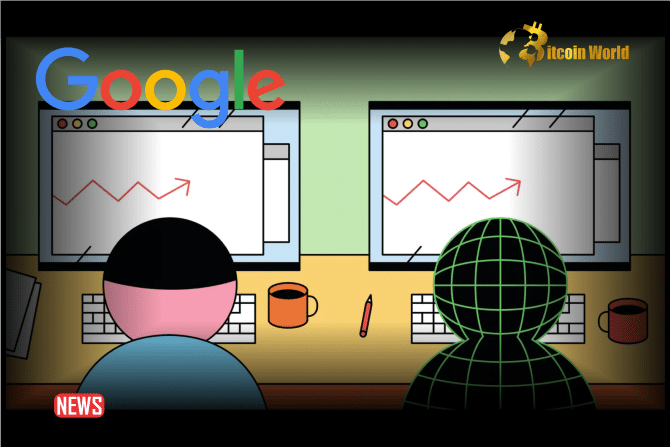Is generative AI about to steal your job? It’s a question on everyone’s mind as tools like ChatGPT and Bard become increasingly powerful. But hold on to your hats! Google, a major player in the AI game, has just released a study that throws a curveball into the narrative of widespread AI-induced unemployment.
Google’s Generative AI Study: What’s the Buzz?
In a nutshell, Google’s research, spearheaded by MIT’s principal research scientist Andrew McAfee, dives deep into the economic ripple effects of generative AI. Published on April 25th, the study directly tackles the big question: Will AI lead to mass unemployment? The answer, according to Google? Not so fast.
No ‘Straight Line’ Between AI and Job Losses – Really?
The study’s core finding is quite reassuring: there’s no direct or immediate link between the rise of generative AI and a surge in unemployment. At least, not right now. Why? Because even with all the hype, generative AI still has some significant limitations.
- Limited Reasoning and Planning: Current AI isn’t capable of complex, multi-step tasks that require planning, logical reasoning, or sustained memory. Think of it like this: AI can write a decent email, but it can’t strategize a year-long marketing campaign on its own.
- Still Behind Humans in Key Skills: Remember those challenging questions that test reasoning and problem-solving? In 2023, humans aced them with a 92% success rate, while even top-tier AI systems only managed a measly 15%. That’s a significant gap!
See Also: Stripe Enables Merchants To Accept USDC Payments on Ethereum, Solana and Polygon
Think of it this way: AI is incredibly powerful for specific tasks, but it’s not yet ready to replace humans in roles that demand nuanced thinking and adaptability.
AI is Evolving – and Fast!
Don’t get too comfortable though! The study also emphasizes that generative AI is rapidly improving thanks to intense research efforts. Just look at the progress of OpenAI’s models:
| AI Model | Release Date | Performance on U.S. Bar Exam (vs. Humans) |
|---|---|---|
| GPT 3.5 | Late 2022 | Better than only 10% of humans |
| GPT 4 | Late 2023 | Better than 90% of humans |
That’s a massive leap in just one year! This rapid evolution means AI’s capabilities will continue to expand, and its impact on the job market will likely shift over time.
The New Industrial Revolution – But Faster
Google’s study paints generative AI as a “general purpose technology,” comparing it to the steam engine that sparked the Industrial Revolution. This is a big deal! It means AI has the potential to transform industries and reshape our world in profound ways.
However, unlike the slow burn of the Industrial Revolution, AI’s impact is expected to be much faster. Why?
- Existing Infrastructure: We already have the digital infrastructure in place (internet, computers, etc.) to deploy AI globally at lightning speed.
- Easy Accessibility: You don’t need to be a coding whiz to use generative AI. Tools are becoming increasingly user-friendly, allowing more people to experiment and integrate AI into their workflows.
Will AI Transform *Your* Job? The Workforce in Flux
While mass unemployment might not be imminent, the study suggests AI could still significantly reshape the job market. Here’s what to watch out for:
- “Hollowing Out” of Mid-Level Jobs: AI might disproportionately impact higher-paying, college-educated roles by automating certain tasks. This could lead to a “hollowing out” effect, where mid-level jobs are squeezed.
- Empowering “Superstars”: AI could amplify the abilities of top performers in various industries, creating a “superstar effect” where a few individuals dominate, potentially leading to increased competition and layoffs at less innovative companies.
- Shifting Skill Demands: While some jobs may be automated, new roles requiring different skills will emerge. Adaptability and continuous learning will be key for workers in the age of AI.
See Also: Immutable Unveils $50M Rewards Program for Gaming on its zkEVM Network
Interestingly, the study also notes that companies already heavily invested in machine learning aren’t the ones initiating layoffs. This suggests that embracing AI proactively might be a strategy for resilience in the face of technological change.
Key Takeaways: AI and the Future of Work
- No Immediate Job Apocalypse: Google’s study suggests generative AI isn’t poised to cause mass unemployment in the short term.
- Rapid AI Evolution: AI capabilities are improving at an astonishing pace, so the long-term impact on jobs is still evolving.
- Workforce Transformation, Not Elimination: AI is more likely to reshape the workforce, creating new opportunities while potentially disrupting existing roles, particularly mid-level positions.
- Adaptability is Crucial: Continuous learning and adapting to new technologies will be essential for workers to thrive in the AI-driven economy.
So, is your job safe? For now, likely yes. But the AI revolution is just getting started. Staying informed, embracing new skills, and understanding the evolving landscape of AI will be crucial for navigating the future of work. It’s not about AI taking over completely; it’s about how we adapt and work *with* AI to shape a new era of productivity and innovation.
#Binance #WRITE2EARN
Disclaimer: The information provided is not trading advice, Bitcoinworld.co.in holds no liability for any investments made based on the information provided on this page. We strongly recommend independent research and/or consultation with a qualified professional before making any investment decisions.




